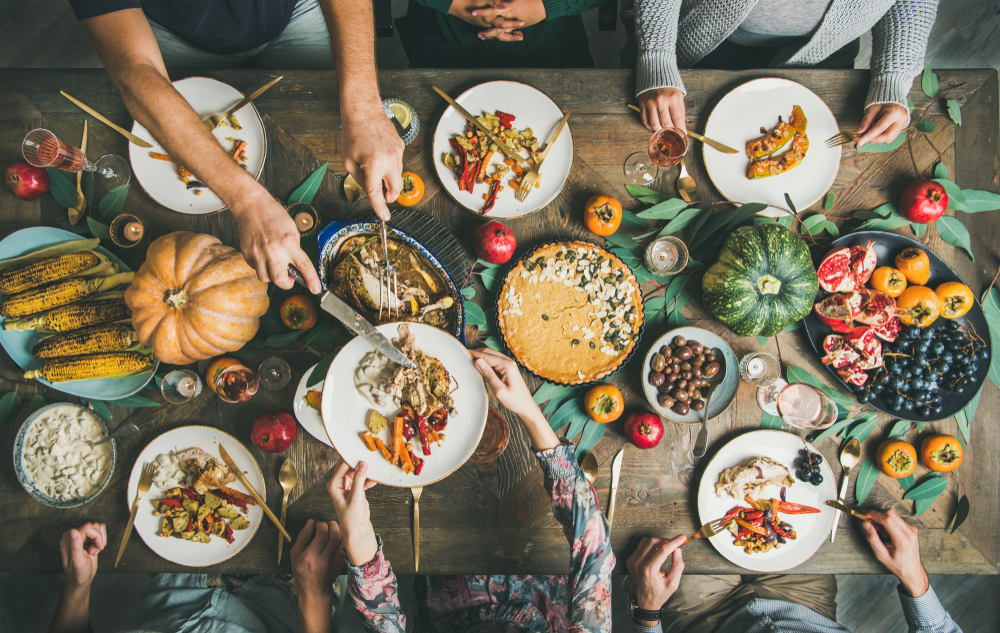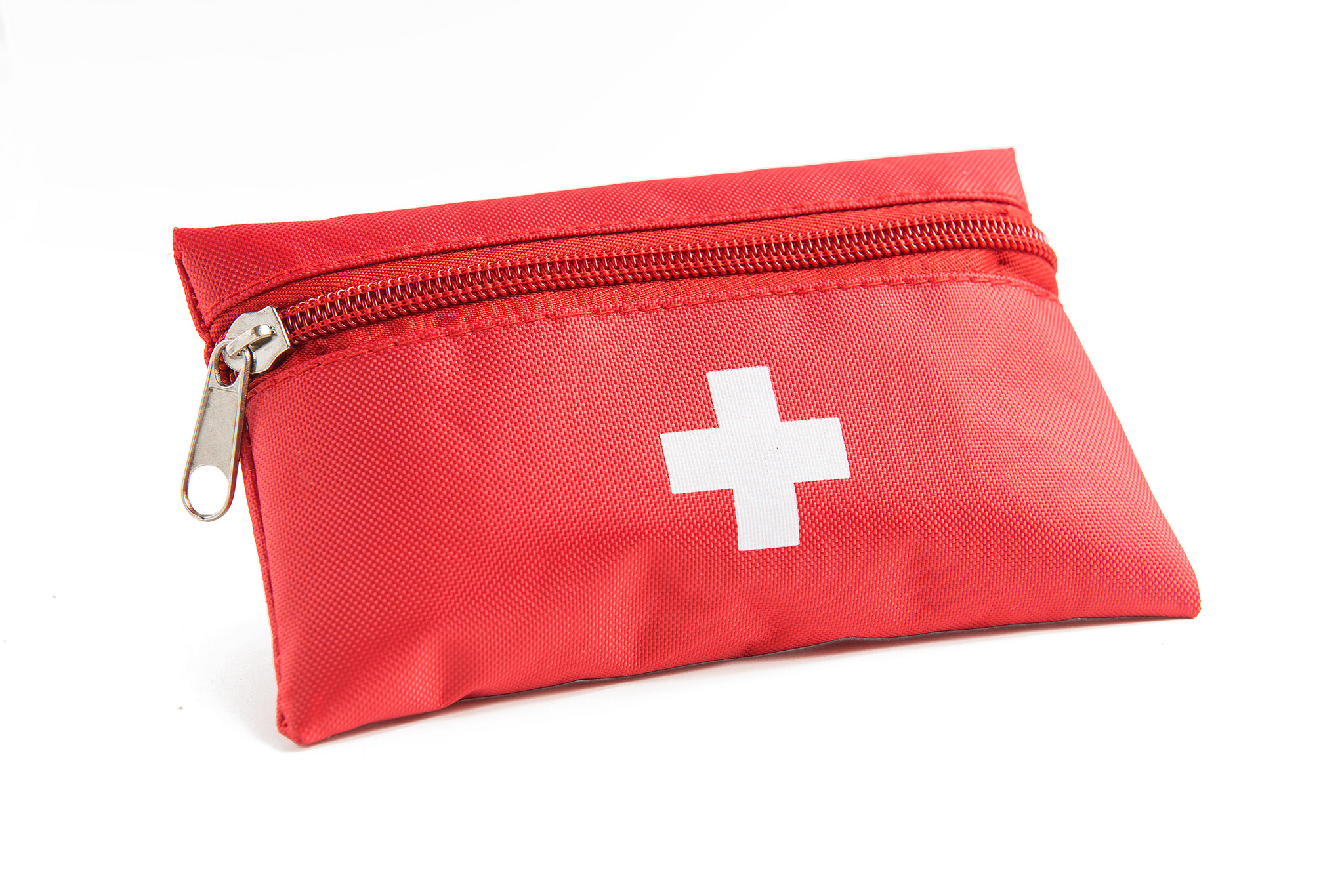
First Aid Kit Tips
December 18, 2024
Habits to Cut Your Risk of Breast Cancer Decade by Decade
December 18, 2024By Susannah Wollman
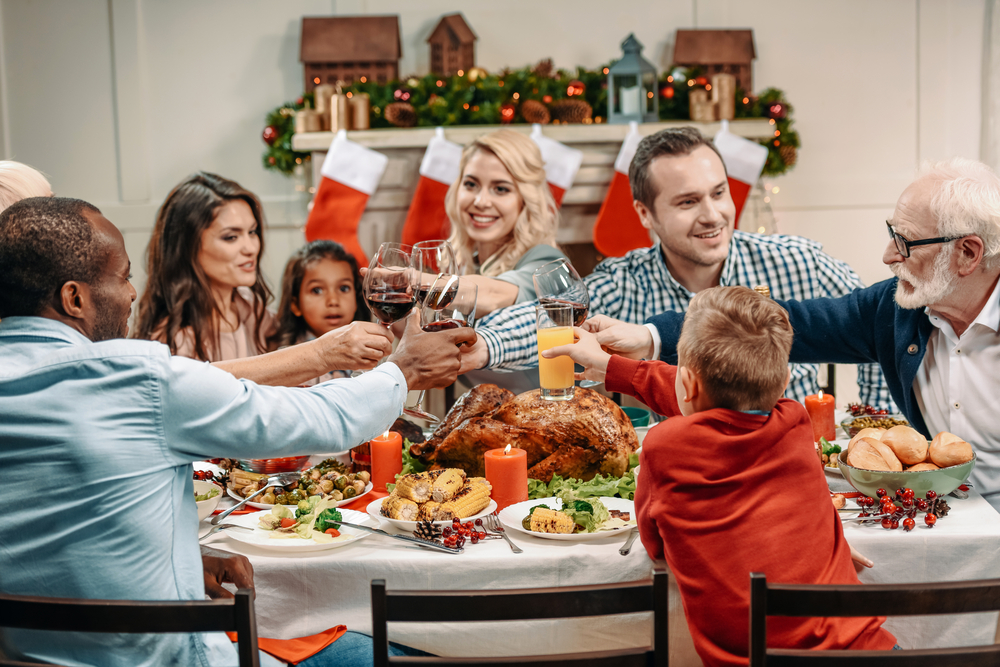
Now that holiday decorations are up everywhere, there’s one more place to decorate that can help you avoid overeating this year. Decorate your plate! What? Yes! Here’s how:
- If you’re the host, shop smart. Don’t go shopping at peak hours when urgency can cause you to throw your healthy plan aside. Instead, shop at off-hours and try to buy from the outer perimeter of the store.
- Make those favorite dishes lighter. Use substitutes for the heavier cream sauces and fat-laden desserts.
- The turkey or roast may be the star of the show, but use fruits and veggies prepared as close to “clean” as possible. Use spices to amp up the taste.
- If you’re a guest, eat lightly throughout the day so that you’re not “starving” when you get to the celebration.
- Start with a small plate. People will fill up a plate no matter what size it is, so choosing a small one means you’ll have less room to pile on the goodies.
- If the meal is a buffet, walk around the table first to see what is offered instead of just putting all the food on your plate as it is offered.
- Decorate your plate to look festive. Choose colorful veggies and fruits for at least ⅔ of the plate’s capacity.
- Take small portions. Remember, you can always come back for more.
- After you’ve eaten what’s on your plate, wait ten minutes before going back for seconds or to grab that luscious dessert. It takes about that long for your stomach to let your brain know that it’s full. Eating before that ten minutes is up is a sure way to overeat.
- Limit alcohol. Start with a refreshing sparkling water or diet soda. Alternate alcoholic drinks with non-alcoholic ones.
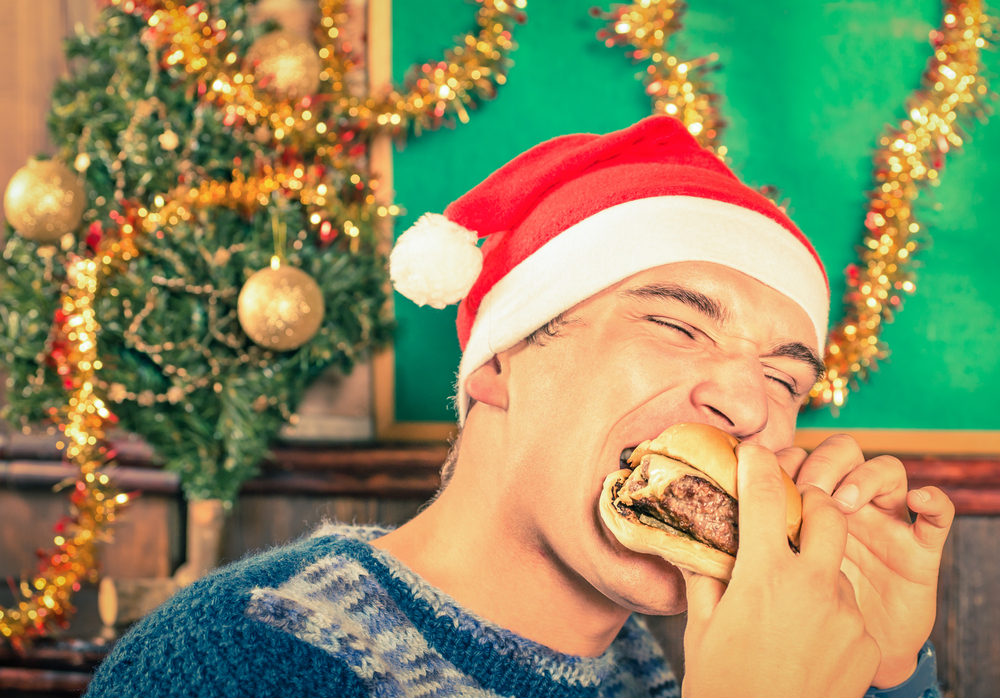
Should you take a break from your diet for the holidays?
Many adults in America are watching their weight. When the holidays approach, concern over weight gain adds to the stress of the festive season.
Sitting on the couch to watch a game on TV is a family tradition in many homes, snacking as you watch. Alcoholic drinks lower your inhibitions, including your awareness of how much food and beverages you are consuming.
As the day rolls on, you find yourself grabbing handfuls of sweet or salty snacks, and before you know it, you’re really on a roll. “Oh, well,” you say, “it’s only one day. I’ll get back to my diet tomorrow.”
In Western societies, most adults will gain an average of a pound between Thanksgiving and New Years¹. It doesn’t sound like much, but they rarely lose that extra weight, adding to their yearly weight gain. Even if you only put three pounds a year on, at the end of ten years you are 30 pounds overweight.
So do you just resign yourself to gaining weight during the holidays? Don’t give up the ship!
According to a study from December 2017², mindfulness is the key. “An increased awareness of internal, rather than external, cues to eat” means that you are looking for the reasons (outside of hunger) that you want to eat. During the holiday feast, food is prepared to be beautiful and fragrant. The celebratory mood can also trigger the desire to eat more. If you are aware of these (and other) triggers, you can control how you respond.
If you only had to deal with one day of temptation, falling off your diet wouldn’t be so bad. However, for five full weeks at the end of each year, we are bombarded with images, sounds, and offerings that motivate us to eat “just a little taste” repeatedly. A 2017 study³ found that rats fed junk food three times a week and chow four times a week had the same effect on gut bacteria that had consumption of a diet consisting of only junk food.
Follow the tips above, be aware of your personal food triggers, and don’t leave home hungry. Refocus on good conversation with friends and family, play touch football instead of merely watching the game, or go for a walk together, and your health will thank you for it.
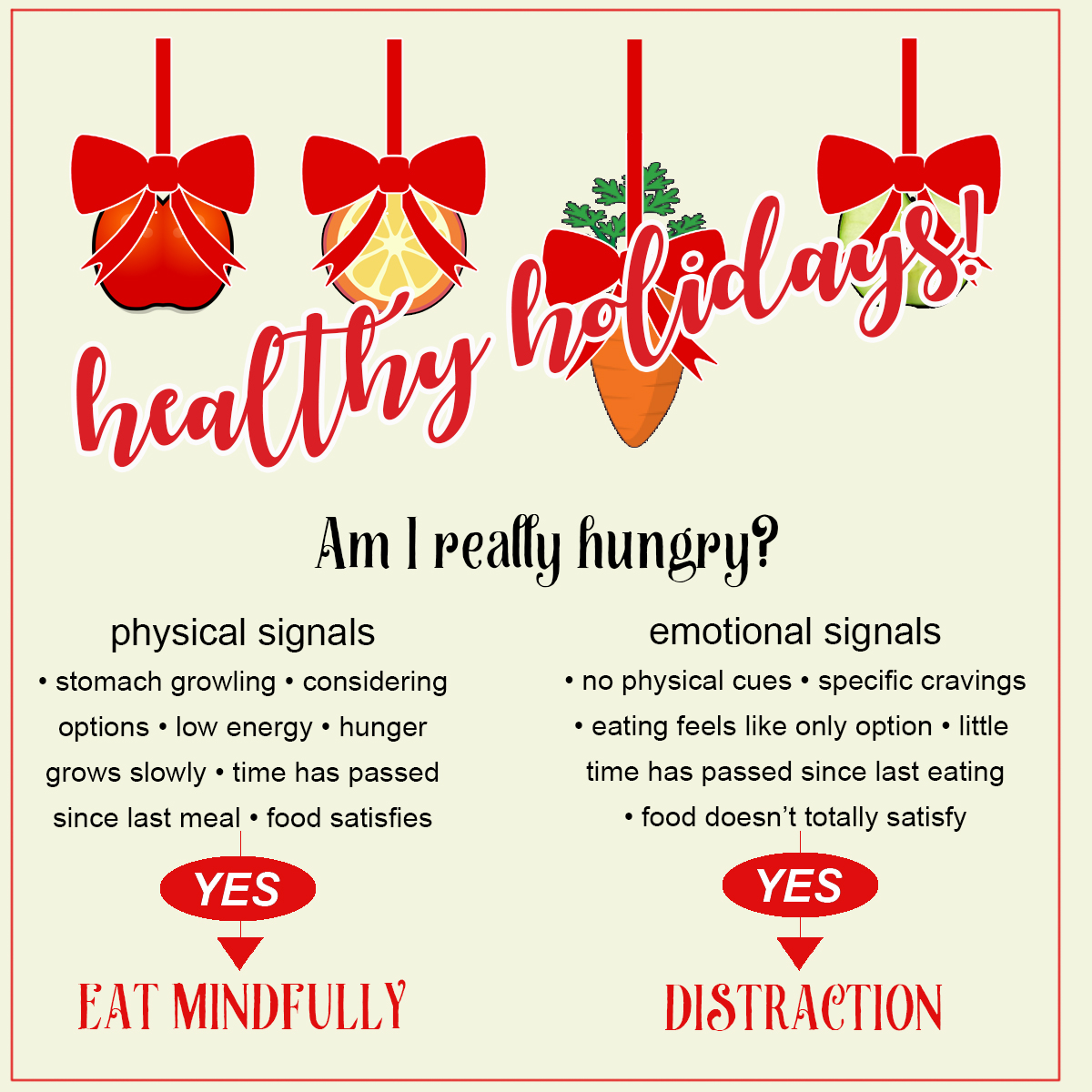
Resources
¹DA, S. (2019). The effect of holiday weight gain on body weight. – PubMed – NCBI. Ncbi.nlm.nih.gov
²Warren, J., Smith, N. and Ashwell, M. (2019). A structured literature review on the role of mindfulness, mindful eating and intuitive eating in changing eating behaviours: effectiveness and associated potential mechanisms. Cambridge Core.
³Kaakoush, N., Martire, S., Raipuria, M., Mitchell, H., Nielsen, S., Westbrook, R. and Morris, M. (2019). Alternating or continuous exposure to cafeteria diet leads to similar shifts in gut microbiota compared to chow diet. Wiley Online Library.

